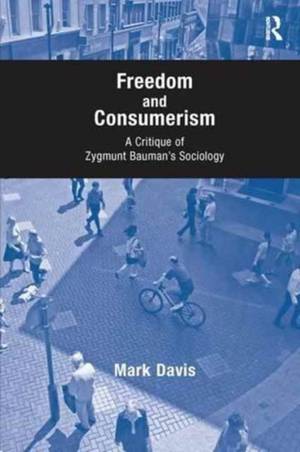
- Afhalen na 1 uur in een winkel met voorraad
- Gratis thuislevering in België vanaf € 30
- Ruim aanbod met 7 miljoen producten
- Afhalen na 1 uur in een winkel met voorraad
- Gratis thuislevering in België vanaf € 30
- Ruim aanbod met 7 miljoen producten
Zoeken
Omschrijving
How does Bauman understand the concept of freedom, and how does this understanding relate to the political traditions of conservatism, liberalism and socialism? Mark Davis offers a critical enquiry into the sociology of Zygmunt Bauman, focusing on his English-language writings from the 1960s onwards. The book contributes to sociological debates about modern society by offering an interpretation of Bauman's work based on the concept of freedom, especially in terms of his extensive consideration of consumerism. Existing studies of Bauman have tended to focus uncritically upon other salient themes in his work, notably culture, power and socialism; Davis repairs the lack of critical engagement in the literature by identifying freedom as a focus for critical reflection. He also opens up new areas of discourse by analyzing Bauman's understanding of freedom in relation to the three great political traditions of conservatism, liberalism and socialism. This is an original contribution to discussions around Bauman's work which will be of interest to both sociologists and political theorists.
Specificaties
Betrokkenen
- Auteur(s):
- Uitgeverij:
Inhoud
- Aantal bladzijden:
- 198
- Taal:
- Engels
Eigenschappen
- Productcode (EAN):
- 9781138251267
- Verschijningsdatum:
- 3/10/2016
- Uitvoering:
- Paperback
- Formaat:
- Trade paperback (VS)
- Afmetingen:
- 156 mm x 233 mm
- Gewicht:
- 452 g

Alleen bij Standaard Boekhandel
+ 140 punten op je klantenkaart van Standaard Boekhandel
Beoordelingen
We publiceren alleen reviews die voldoen aan de voorwaarden voor reviews. Bekijk onze voorwaarden voor reviews.











